
Bistrik: Sarajevo's Historic Gem
Nestled on the slopes below the captivating Trebević Mountain, Bistrik is one of the oldest and most picturesque neighborhoods in Sarajevo. It seamlessly blends the charm of the Ottoman era with the vibrancy of modern-day life. As you stroll through its narrow, winding streets, you'll be transported back in time, with traditional Bosnian houses and historic landmarks at every turn. Bistrik is home to the iconic Latin Bridge, famously known as the site of Archduke Franz Ferdinand's assassination, which sparked World War I. This historical significance makes Bistrik a must-visit for history enthusiasts. The neighborhood's rich cultural tapestry is woven through its numerous mosques, churches, and synagogues, reflecting Sarajevo's diverse heritage. A visit to Bistrik isn't complete without exploring the bustling local markets, where you can savor authentic Bosnian delicacies and purchase unique handmade crafts. The neighborhood offers stunning panoramic views of Sarajevo, particularly from the Yellow Fortress, which is a popular spot for both locals and tourists, especially at sunset. Whether you're a history buff, a culture seeker, or simply looking for a scenic escape, Bistrik promises an unforgettable experience.
Local tips in Bistrik
- Wear comfortable shoes as the streets are steep and cobblestone.
- Visit the Yellow Fortress at sunset for breathtaking views of Sarajevo.
- Don't miss the local markets for authentic Bosnian food and unique crafts.
- Learn about the history of the Latin Bridge and its significance.
- Explore the various religious sites to understand Sarajevo's diverse cultural heritage.
Bistrik: Sarajevo's Historic Gem
Nestled on the slopes below the captivating Trebević Mountain, Bistrik is one of the oldest and most picturesque neighborhoods in Sarajevo. It seamlessly blends the charm of the Ottoman era with the vibrancy of modern-day life. As you stroll through its narrow, winding streets, you'll be transported back in time, with traditional Bosnian houses and historic landmarks at every turn. Bistrik is home to the iconic Latin Bridge, famously known as the site of Archduke Franz Ferdinand's assassination, which sparked World War I. This historical significance makes Bistrik a must-visit for history enthusiasts. The neighborhood's rich cultural tapestry is woven through its numerous mosques, churches, and synagogues, reflecting Sarajevo's diverse heritage. A visit to Bistrik isn't complete without exploring the bustling local markets, where you can savor authentic Bosnian delicacies and purchase unique handmade crafts. The neighborhood offers stunning panoramic views of Sarajevo, particularly from the Yellow Fortress, which is a popular spot for both locals and tourists, especially at sunset. Whether you're a history buff, a culture seeker, or simply looking for a scenic escape, Bistrik promises an unforgettable experience.
Iconic landmarks you can’t miss
Baščaršija
Explore Baščaršija, the vibrant historical bazaar of Sarajevo, where culture, history, and delightful cuisine converge in a captivating atmosphere.
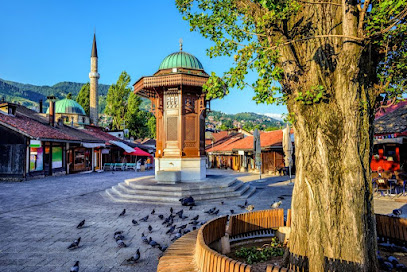
Sarajevska žičara
Experience Sarajevo from above: Ride the iconic cable car to Mount Trebević for stunning views, Olympic history, and natural beauty.
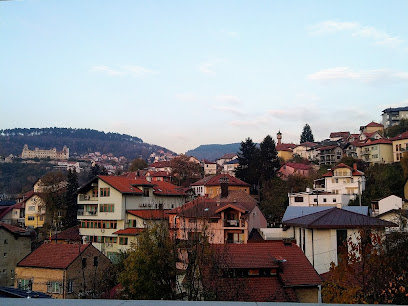
Yellow Fortress
Experience breathtaking panoramic views and rich history at Sarajevo's Yellow Fortress, a cultural gem and iconic observation deck.
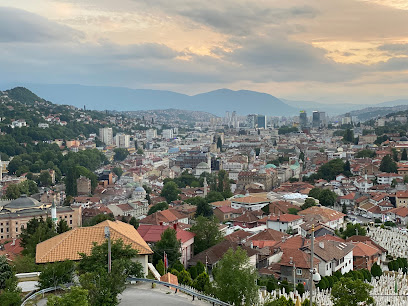
White Fortress
Explore Sarajevo's historic White Fortress for panoramic views and a glimpse into the city's rich medieval, Ottoman, and Austro-Hungarian past.
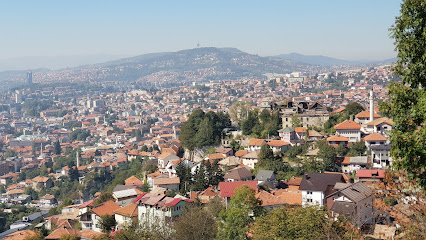
Tašlihan
Explore the ruins of Tašlihan in Sarajevo, a 16th-century caravanserai and National Monument, offering a glimpse into Ottoman-era trade and travel.
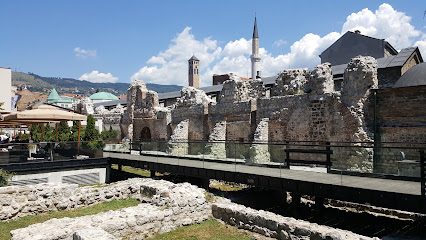
Brusa Bezistan
Explore Sarajevo's past in a 16th-century silk market turned museum, showcasing artifacts from prehistoric times to the Austro-Hungarian Empire.
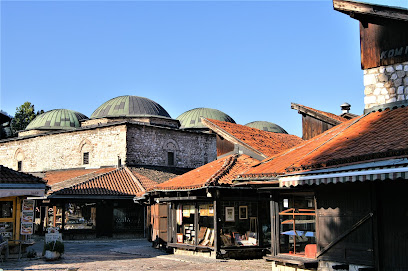
Bistrik tower
Explore the historic Bistrik Tower in Sarajevo: a fortress turned observatory, offering panoramic views and a glimpse into the city's resilient past.
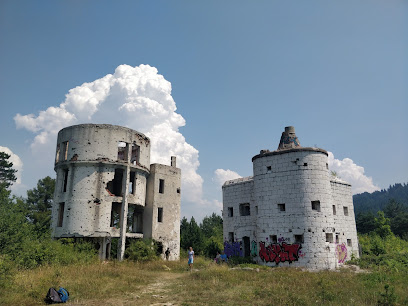
Ratni muzej - War Museum 1992 Sarajevo
Experience the personal stories of survival at Sarajevo's War Museum 1992, a moving tribute to the city's resilience during the siege.
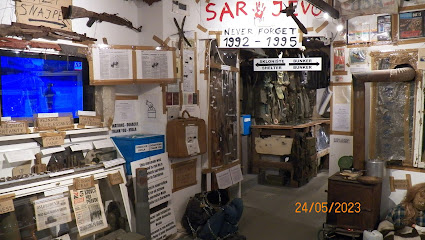
Bistrik Railway Station
Explore Sarajevo's history at the beautifully renovated Bistrik Railway Station, a national monument and cultural hub.
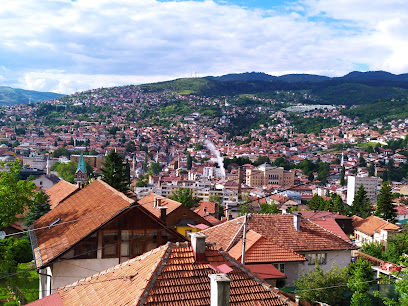
Location of Sarajevo Assassination
Visit the site where a single act changed the world, sparking World War I in the heart of Sarajevo.
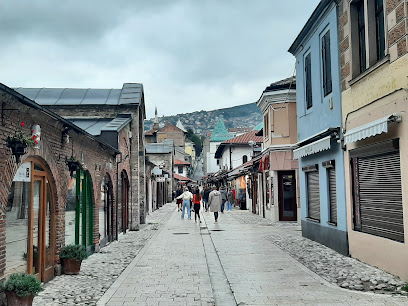
Gavrilo Princip's footprints
Stand on the spot where World War I began: Gavrilo Princip's Footprints in Sarajevo, a landmark of immense historical significance.
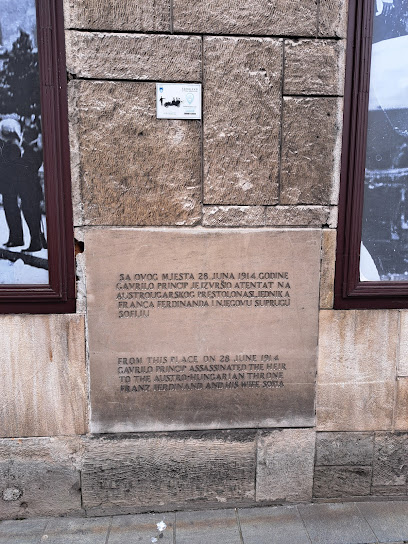
Sarajevski gejziri
Discover Sarajevski Gejziri: A unique geothermal attraction in Sarajevo's scenic Bentbaša, offering nature and tranquility.
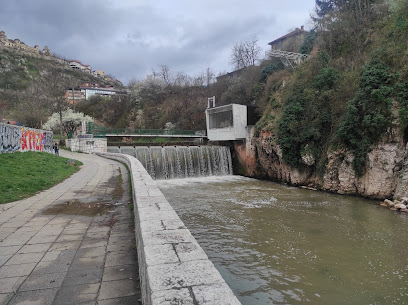
Sarajevo
Discover Sarajevo's Franciscan Church of St. Anthony of Padua: a blend of faith, history, and architectural beauty in the heart of the city.

BISTRIK
Explore Bistrik, Sarajevo's historic gem: Ottoman-era charm, cultural diversity, and a tranquil escape in the heart of the city.

Unmissable attractions to see
War Childhood Museum
Explore the War Childhood Museum in Sarajevo, where the resilience of children during conflict is poignantly captured through personal stories and artifacts.
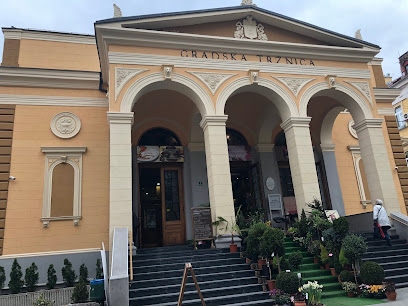
Sarajevo Meeting of Cultures
Explore the rich tapestry of cultures at the Sarajevo Meeting of Cultures, where diverse traditions and stunning architecture come together in harmony.
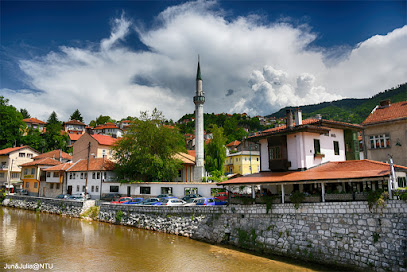
Bistrik tower
Explore Bistrik Tower, a historical fortress in Sarajevo, offering breathtaking panoramic views and a glimpse into the region's architectural heritage.
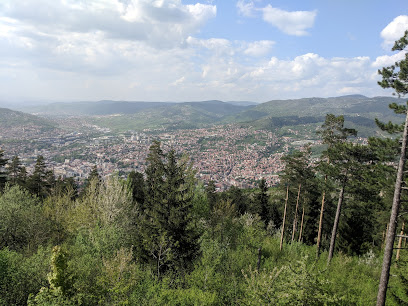
Location of Sarajevo Assassination
Explore the pivotal site of the Sarajevo Assassination, where history unfolded and shaped the world as we know it today.
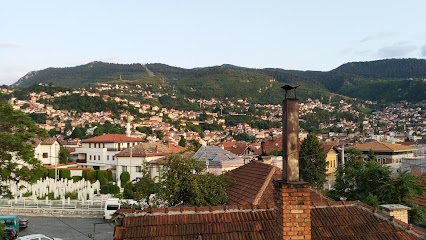
Essential places to dine
Brewery HS
Experience Sarajevo's vibrant brewing culture at Brewery HS - where local flavors meet rich traditions in every sip and bite.
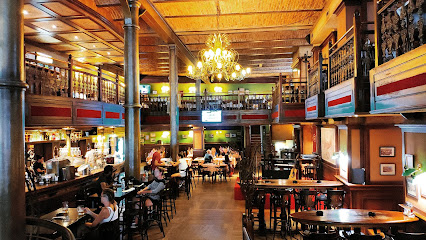
Park Prinčeva
Experience authentic Bosnian cuisine amidst beautiful natural surroundings at Park Prinčeva in Sarajevo.
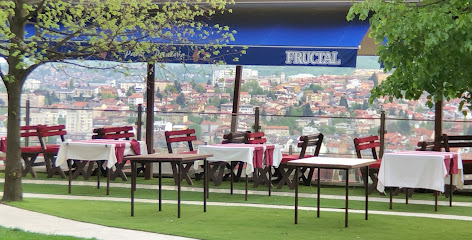
Dveri
Experience authentic Bosnian cuisine at Dveri in Sarajevo - where tradition meets flavor in a cozy setting.
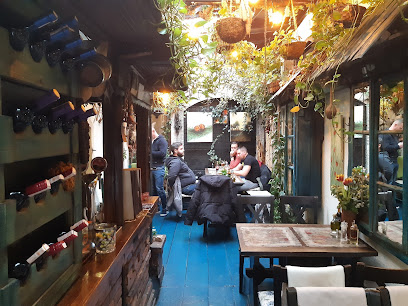
Nanina Kuhinja
Discover authentic Bosnian flavors at Nanina Kuhinja – a culinary treasure in Sarajevo offering traditional dishes in a cozy setting.
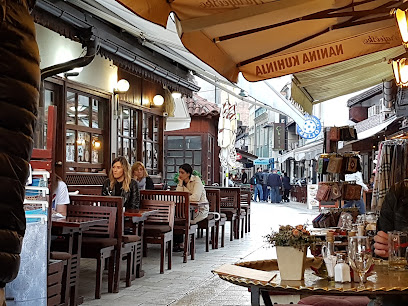
Staklo
Experience authentic Bosnian cuisine at Staklo in Sarajevo – where tradition meets modern culinary artistry.
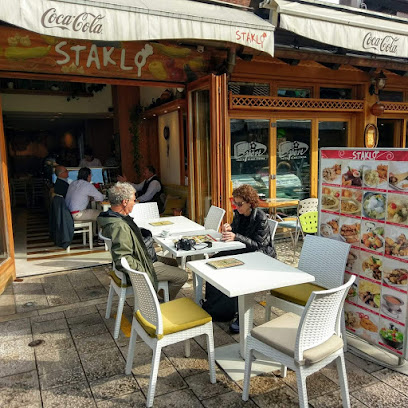
Mado
Experience authentic Bosnian cuisine at Mado in Sarajevo - where tradition meets flavor in every bite.
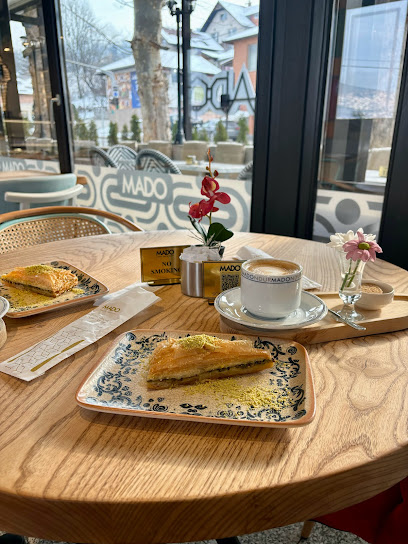
Konoba Fakat
Savor authentic Bosnian flavors at Konoba Fakat in Sarajevo - where tradition meets taste in every dish.
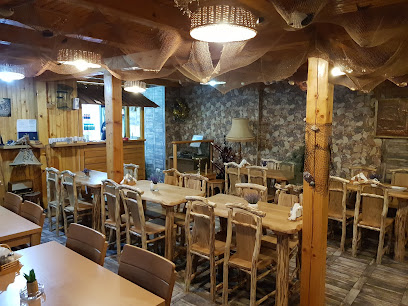
Good Restaurant
Discover authentic Bosnian flavors at Good Restaurant in Sarajevo, where every dish reflects the heart of local cuisine.
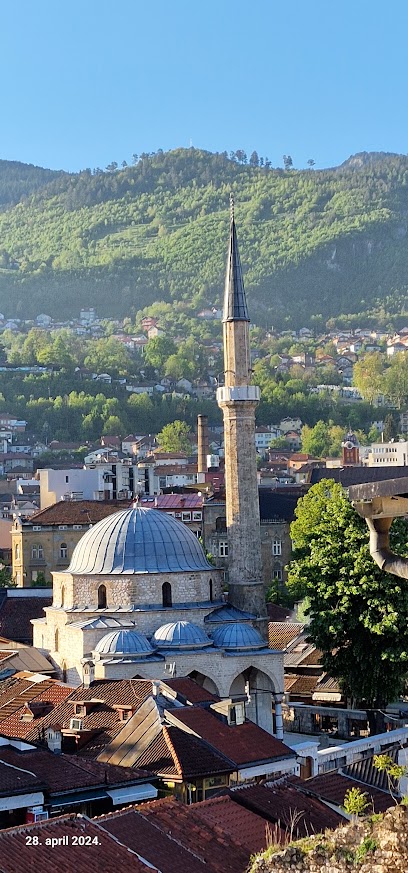
Shini
Discover authentic Bosnian cuisine at Shini in Sarajevo – where tradition meets modern taste in a warm and inviting atmosphere.
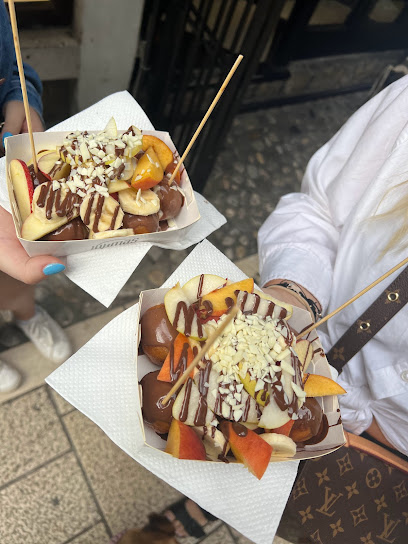
Amber Dining Experience
Experience exquisite Bosnian cuisine at Amber Dining Experience, where tradition meets modern culinary artistry in Sarajevo.
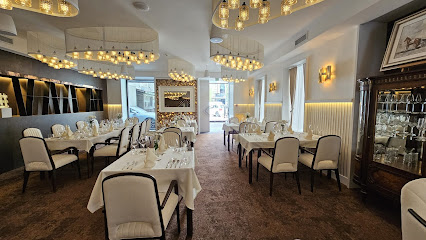
Markets, malls and hidden boutiques
Bazerdžan Baščaršija | Concept Store, Fashion, Souvenir, Gift Shop
Discover the charm of Sarajevo at Bazerdžan Baščaršija, your go-to shop for unique gifts and local fashion treasures.
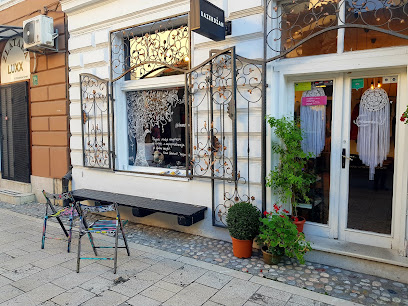
Gift Sa
Discover the essence of Sarajevo at Gift Sa, a boutique offering unique clothing and local crafts that celebrate Bosnian culture.
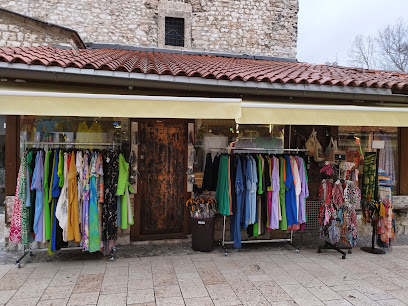
SUVENIR (souvenirs and antiques store)
Discover unique souvenirs and antiques at SUVENIR, Sarajevo's charming collectibles store showcasing local craftsmanship and rich cultural heritage.
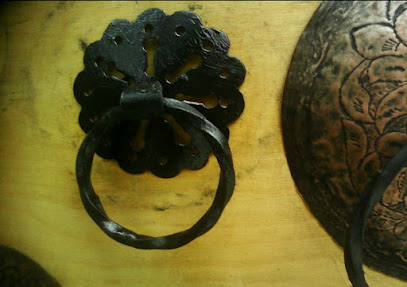
Unique Shop
Explore Unique Shop in Sarajevo for an extraordinary shopping experience filled with quality clothing and local flair.
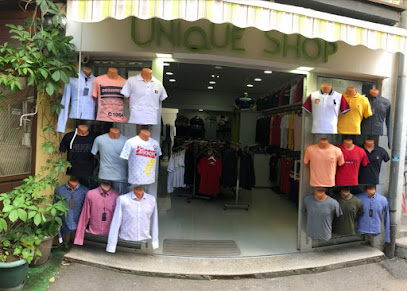
Vestsocks Sarajevo - Baščaršija
Explore Vestsocks Sarajevo for unique handmade gifts and authentic Bosnian crafts in the heart of Baščaršija.
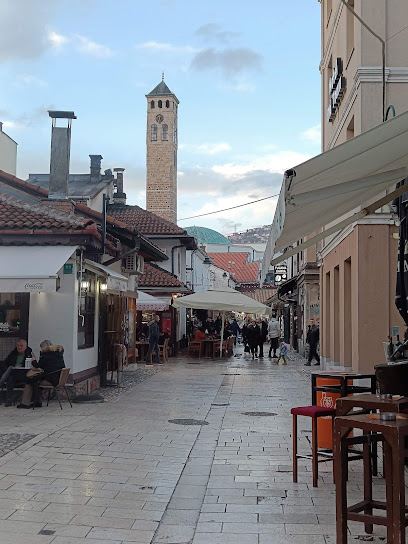
Vitrina Concept Store
Discover unique gifts and artisan crafts at Vitrina Concept Store in Sarajevo, where tradition meets modern design for unforgettable souvenirs.

Second hand prodavnica
Explore Sarajevo's unique second-hand store for vintage clothing and sustainable shopping, uncovering treasures in every corner.
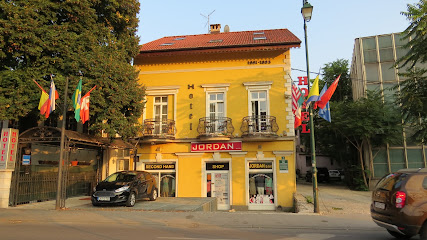
Suveniri žičara - Souvenirs Cable Car
Explore the essence of Sarajevo at Suveniri žičara, where unique souvenirs meet breathtaking views and local craftsmanship.
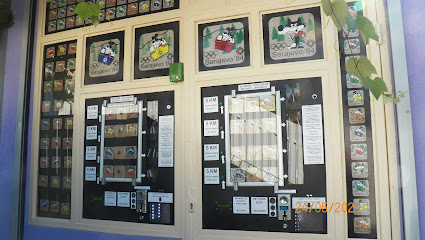
Ipek Boutique Sarajevo
Explore Ipek Boutique Sarajevo for unique handcrafted coppersmith creations and elegant jewelry, a true reflection of Bosnian artistry and culture.
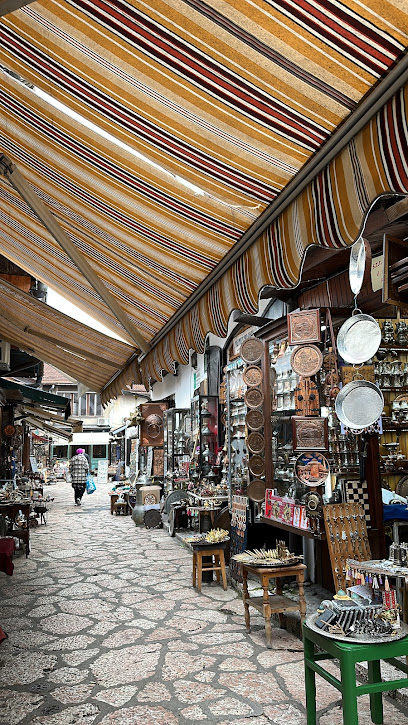
Online Mix
Explore Online Mix, Sarajevo's boutique treasure offering unique Bosnian crafts and stylish fashion, perfect for souvenirs and gifts.

Essential bars & hidden hideouts
Zlatna ribica
Discover the vibrant atmosphere and unique flavors at Zlatna Ribica, a charming bar and café in the heart of Sarajevo.
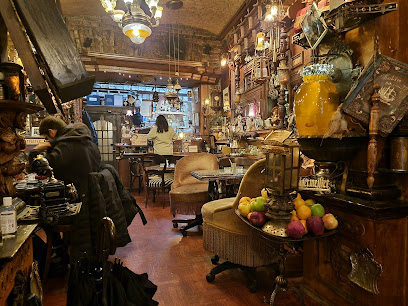
Gastro pub Fabrika
Discover the vibrant culinary scene of Sarajevo at Gastro Pub Fabrika, where tradition meets modern flavors in a warm and inviting atmosphere.
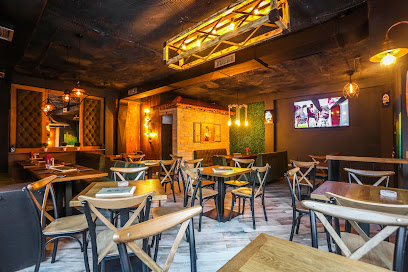
Viking Pub
Discover Viking Pub in Sarajevo: A unique venue blending local cuisine, drinks, and Viking-inspired decor for an unforgettable experience.
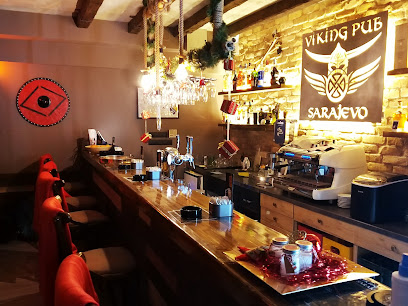
Barometar
Experience the charm of Barometar, a cozy bar and café in Sarajevo where local flavors meet a welcoming atmosphere.
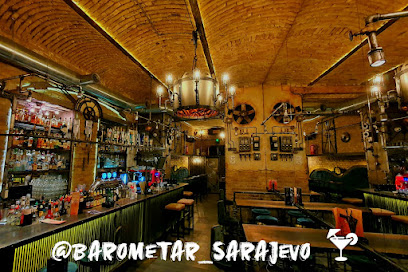
Caffe Pub Gondola
Discover Caffe Pub Gondola, a cozy retreat in Sarajevo offering a delightful mix of traditional and modern beverages in a vibrant atmosphere.
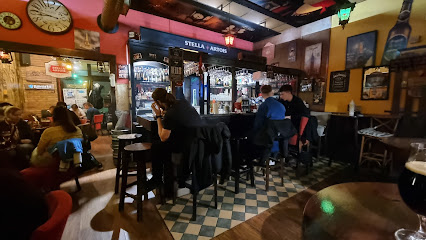
Aperitivo bar
Discover the vibrant cocktail scene at Aperitivo Bar, a cozy haven in Sarajevo perfect for unwinding and enjoying local flavors.
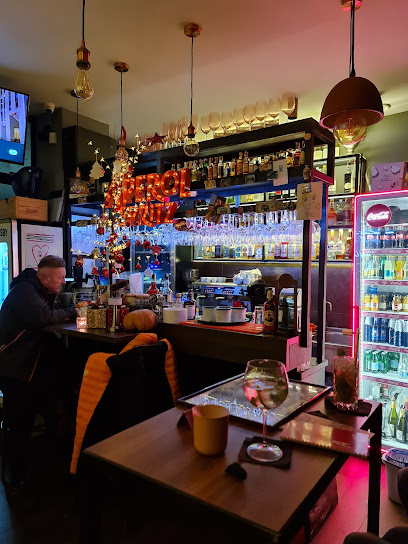
Deco Bar
Discover Deco Bar in Sarajevo, where stylish ambiance meets delicious drinks for an unforgettable experience in the heart of the city.
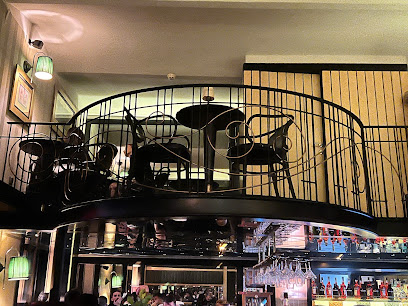
Sophie’s Garden
Discover Sophie’s Garden, a perfect blend of bar and café in Sarajevo, offering delicious drinks, tasty bites, and a tranquil atmosphere.
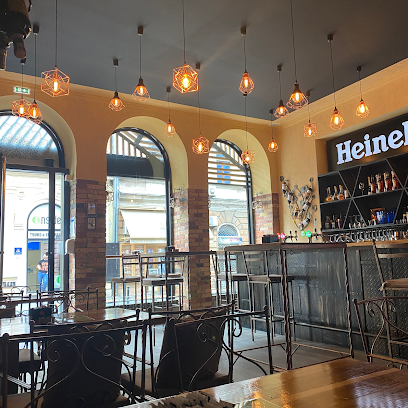
Vina i rakije kod Rake
Discover the vibrant wine culture of Sarajevo at Vina i rakije kod Rake, a cozy wine bar perfect for tasting local wines and rakija.
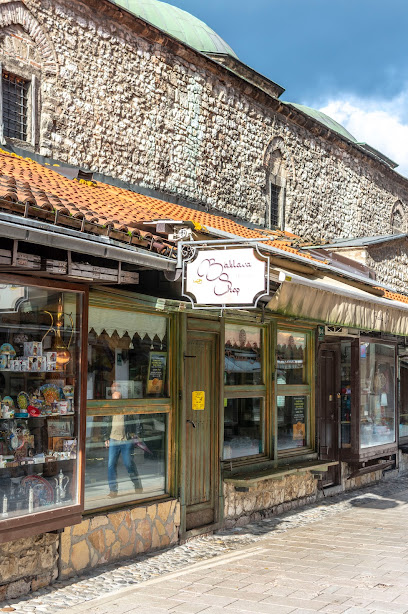
Wine NOT Sarajevo
Experience the warmth of Bosnian hospitality at Wine NOT Sarajevo, where local charm meets exquisite wines in a cozy ambiance.
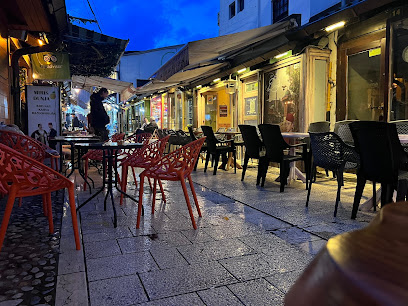
Local Phrases
-
- HelloZdravo
[Zdrah-voh] - GoodbyeDoviđenja
[Doh-vee-jen-ya] - YesDa
[Dah] - NoNe
[Neh] - Please/You're welcomeMolim
[Moh-leem] - Thank youHvala
[Hvah-lah] - Excuse me/SorryIzvini
[Eez-vee-nee] - How are you?Kako si?
[Kah-koh see?] - Fine. And you?Dobro. A ti?
[Doh-bro. Ah tee?] - Do you speak English?Govorite li engleski?
[Goh-voh-ree-teh lee ehn-gleh-skee?] - I don't understandNe razumijem
[Neh rah-zoo-mee-yem]
- HelloZdravo
-
- I'd like to see the menu, pleaseMolim vas, da vidim jelovnik
[Moh-leem vahs, dah vee-deem yeh-lohv-neek] - I don't eat meatJa ne jedem meso
[Yah neh yeh-dem meh-soh] - Cheers!Živjeli!
[Zhee-vyeh-lee] - I would like to pay, pleaseŽelim platiti, molim
[Zheh-leem plah-tee-tee, moh-leem]
- I'd like to see the menu, pleaseMolim vas, da vidim jelovnik
-
- Help!Upomoć!
[Oo-poh-mohch!] - Go away!Idi odavde!
[Ee-dee oh-dahv-deh!] - Call the Police!Zovite policiju!
[Zoh-vee-teh poh-leet-see-yoo!] - Call a doctor!Zovite doktora!
[Zoh-vee-teh dohk-toh-rah!] - I'm lostIzgubio/la sam se
[Eez-goo-byoh/lah sahm seh] - I'm illBolestan/na sam
[Boh-leh-stahn/nah sahm]
- Help!Upomoć!
-
- I'd like to buy...Želim kupiti...
[Zheh-leem koo-pee-tee] - I'm just lookingSamo gledam
[Sah-moh gleh-dahm] - How much is it?Koliko košta?
[Koh-lee-koh koh-shta?] - That's too expensiveTo je previše skupo
[Toh yeh preh-vee-sheh skoo-poh] - Can you lower the price?Možete li spustiti cijenu?
[Moh-zheh-teh lee spoos-tee-tee tsee-yeh-noo?]
- I'd like to buy...Želim kupiti...
-
- What time is it?Koliko je sati?
[Koh-lee-koh yeh sah-tee?] - It's one o'clockJedan je sat
[Yeh-dahn yeh saht] - Half past (10)Pola (deset)
[Poh-lah (deh-set)] - MorningJutro
[Yoo-troh] - AfternoonPopodne
[Poh-pohd-neh] - EveningVeče
[Veh-cheh] - YesterdayJuče
[Yoo-cheh] - TodayDanas
[Dah-nahs] - TomorrowSutra
[Soo-trah] - 1Jedan
[Yeh-dahn] - 2Dva
[Dvah] - 3Tri
[Tree] - 4Četiri
[Cheh-tee-ree] - 5Pet
[Peh-t] - 6Šest
[Shehst] - 7Sedam
[Seh-dahm] - 8Osam
[O-sahm] - 9Devet
[Deh-veht] - 10Deset
[Deh-set]
- What time is it?Koliko je sati?
-
- Where's a/the...?Gdje je...?
[Gdyeh yeh...?] - What's the address?Koja je adresa?
[Koh-yah yeh ah-deh-sah?] - Can you show me (on the map)?Možete li mi pokazati (na mapi)?
[Moh-zheh-teh lee mee poh-kah-zah-tee (nah mah-pee)?] - When's the next (bus)?Kada je sljedeći (autobus)?
[Kah-dah yeh sleh-deh-chee (ow-toh-boos)?] - A ticket (to ....)Jednu kartu (za ....)
[Yehd-noo kahr-too (zah ....)]
- Where's a/the...?Gdje je...?
History of Bistrik
-
Bistrik's history is deeply intertwined with the Ottoman Empire, which established its presence in Sarajevo in the 15th century. The neighborhood grew as a residential area for Ottoman dignitaries and craftsmen, characterized by its narrow winding streets and traditional architecture. Many of the mosques and public buildings from this period still stand, showcasing the Islamic architectural influence that shaped Sarajevo.
-
Throughout the Ottoman period and into the Austro-Hungarian era, Bistrik became a melting pot of cultures, where Bosniaks, Croats, Serbs, and Jews coexisted. This diversity enriched the local culture, evident in the neighborhood's culinary offerings, religious sites, and communal traditions. The coexistence is highlighted by the various places of worship, including mosques, churches, and synagogues, that reflect the intertwined history of the communities.
-
During World War II, Bistrik was a site of significant resistance against Axis forces. Local Partisan groups operated within the neighborhood, utilizing its hilly terrain for strategic advantage. The legacy of this period is remembered through various memorials in Sarajevo, highlighting the sacrifices made by residents in the struggle for liberation.
-
Bistrik, like much of Sarajevo, experienced the harrowing effects of the Siege of Sarajevo from 1992 to 1996. The neighborhood was strategically important due to its elevated position, leading to its use by sniper units. The siege brought destruction and hardship, but also a strong sense of community as residents came together to support one another during the conflict. The scars of war are still visible in the architecture and the stories of the people who live there.
-
In the years following the war, Bistrik has undergone significant reconstruction and revitalization efforts. Cultural initiatives have emerged to preserve the neighborhood's rich history, including art festivals, traditional music events, and community gatherings. The neighborhood has become a symbol of resilience, showcasing the blend of past and present as the community works to rebuild and promote its cultural heritage.
Bistrik Essentials
-
Bistrik is easily accessible from various neighborhoods in Sarajevo. You can take a tram or bus from the city center (Baščaršija) to Bistrik. Tram lines 3 and 6 offer direct routes, while buses 31 and 32 also serve the area. Taxis are readily available and can provide a quick way to reach Bistrik from anywhere in the city. The journey typically takes around 10-20 minutes depending on traffic.
-
Bistrik is a compact neighborhood, making it perfect for exploring on foot. However, local public transport options like trams and buses are available for longer distances. Bicycles can be rented from various shops in the city center, and cycling through Bistrik can be a pleasant experience. Be cautious on steep streets and be mindful of pedestrians.
-
Bistrik is generally safe for tourists, but like any urban area, standard precautions should be observed. Avoid walking alone at night in poorly lit areas, particularly near the riverbank. While most of Bistrik is safe, it's wise to be wary of pickpockets in crowded places like markets. Always keep your belongings secure and stay aware of your surroundings.
-
In case of an emergency, dial 112 for police, fire, and medical assistance. The nearest hospital is the University Clinical Center of Sarajevo, located in the neighboring area. It is advisable to have travel insurance that covers medical emergencies. Pharmacies are available in Bistrik for minor health issues.
-
Fashion: Do dress modestly, especially when visiting religious sites such as churches. Avoid overly revealing clothing. Religion: Do respect local customs and traditions; cover your head when entering churches. Public Transport: Do give up your seat for elderly passengers. Don't eat or drink on public transport. Greetings: Do greet people with a handshake; a slight bow of the head shows respect. Eating & Drinking: Do try local delicacies and accept food offerings. Don't refuse hospitality, as it is considered impolite.
-
To experience Bistrik like a local, visit the small cafes and bakeries serving traditional Bosnian coffee and pastries. Take a stroll along the streets to admire the Ottoman-era architecture. Engage with locals, who are often friendly and happy to share stories about their neighborhood. Don’t miss the opportunity to explore the nearby Vrelo Bosne park for a picturesque escape into nature.
Nearby Cities to Bistrik
-
Things To Do in Zenica
-
Things To Do in Mostar
-
Things To Do in Tuzla
-
Things To Do in Jajce
-
Things To Do in Nikšić
-
Things To Do in Trebinje
-
Things To Do in Makarska
-
Things To Do in Dubrovnik
-
Things To Do in Banja Luka
-
Things To Do in Perast
-
Things To Do in Herceg Novi
-
Things To Do in Tivat
-
Things To Do in Kotor
-
Things To Do in Hvar
-
Things To Do in Split










